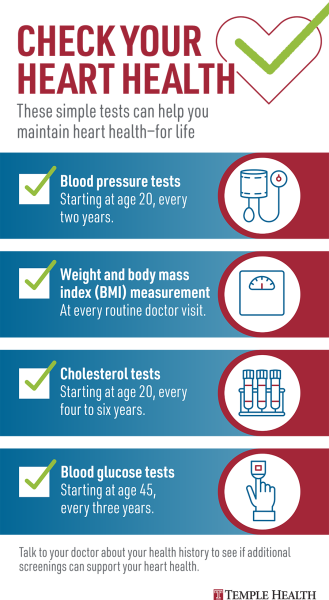To safeguard your heart, cardiologists recommend avoiding saturated fat, fried food, and bacon. These foods can pose a risk to your health if consumed excessively.
It can be challenging for patients to adhere to strict heart-healthy diets, so it’s okay to indulge occasionally but in moderation. It is important to understand what foods cardiologists want you to avoid in order to maintain a healthy heart.
We will discuss three foods that cardiologists recommend steering clear of to safeguard your heart. By avoiding these foods, you can take proactive steps towards protecting your heart health and potentially reducing the risk of heart disease and other cardiovascular issues.

Credit: www.templehealth.org
Unhealthy Foods To Avoid
To safeguard your heart, cardiologists recommend avoiding saturated fat, fried food, and bacon. These unhealthy foods can increase the risk of heart problems. Stick to a heart-healthy diet to maintain optimal heart health.
Saturated Fat
Saturated fats are a major culprit when it comes to heart health. These unhealthy fats are typically found in animal products such as fatty meats, high-fat dairy products, and tropical oils. They can raise your blood cholesterol levels, which increases the risk of developing heart disease. It’s important to limit your intake of saturated fats and opt for healthier alternatives instead. Choose lean meats, low-fat dairy products, and cooking oils that are low in saturated fat, such as olive oil or avocado oil.
Fried Food
Fried foods may be delicious, but they are not your heart’s best friend. Fried foods, such as french fries, fried chicken, and fried seafood, are typically cooked in unhealthy oils that are high in trans fats. Trans fats can raise your bad cholesterol levels while lowering your good cholesterol levels, increasing the risk of heart disease. Try to avoid or minimize your consumption of fried foods and opt for healthier cooking methods such as baking, grilling, or steaming. Your heart will thank you!
Bacon And Processed Meats
Bacon and processed meats may be breakfast favorites for many, but they are far from heart-healthy. These processed meats, including sausages, hot dogs, and deli meats, are high in sodium, saturated fats, and unhealthy additives. Regular consumption of these meats has been linked to an increased risk of heart disease and other health problems. If you’re looking to safeguard your heart health, it’s best to avoid or limit your intake of bacon and processed meats. Instead, choose lean sources of protein such as skinless chicken, fish, legumes, and tofu.
Unhealthy Heart Habits
To safeguard your heart, cardiologists recommend avoiding saturated fat, fried food, and bacon. These foods can increase the risk of heart disease and should be limited in your diet.
When it comes to safeguarding your heart health, it’s important to pay attention to certain habits that can have a negative impact on your cardiovascular system. Cardiologists strongly advise avoiding these unhealthy heart habits:
Smoking
Smoking is one of the most detrimental habits you can have when it comes to your heart health. Cigarette smoke contains harmful chemicals that can damage your blood vessels and increase your risk of heart disease and heart attacks.
Alcohol Use
Excessive alcohol consumption can have a negative impact on your heart health. While moderate alcohol intake may have some potential benefits, excessive drinking can lead to high blood pressure, heart failure, and increased risk of stroke.
Poor Diet
Your diet plays a crucial role in maintaining a healthy heart. Consuming a diet high in saturated fats, fried foods, processed meats, and sugary snacks can increase your cholesterol levels, contribute to weight gain, and raise your risk of heart disease.
Stress
Chronic stress can take a toll on your heart. High levels of stress hormones can lead to increased blood pressure, inflammation, and heart palpitations. Finding healthy ways to manage stress, such as exercise, meditation, or engaging in hobbies, is crucial for maintaining good heart health.
Little Physical Activity
Lack of physical activity can contribute to several heart health problems. Engaging in regular cardiovascular exercise helps strengthen your heart muscle, improve blood flow, lower blood pressure, and maintain a healthy weight.
Avoiding Physicals And Checkups
Regular medical checkups and physical exams are important for detecting any underlying heart conditions early on. Neglecting these routine checkups may lead to missed opportunities for prevention and early intervention.
High Salt Intake
Consuming excessive amounts of salt can contribute to high blood pressure, which is a major risk factor for heart disease. It’s important to limit your intake of processed and packaged foods that are high in sodium. Instead, opt for fresh, whole foods and use herbs and spices to flavor your meals.
Inadequate Sleep
Getting enough sleep is essential for your overall health, including your heart health. Chronic lack of sleep can increase your risk of high blood pressure, obesity, and diabetes, all of which can contribute to heart disease.
Conclusion
By making conscious efforts to avoid these unhealthy heart habits, you can significantly lower your risk of developing heart disease and improve your overall cardiovascular health. Incorporating healthy habits such as a balanced diet, regular physical activity, stress management, and regular checkups can go a long way in safeguarding your heart health.
Recommended Heart-healthy Foods
When it comes to safeguarding your heart, following a heart-healthy diet is key. While it’s important to avoid certain foods that can negatively impact your heart health, you can also incorporate a variety of delicious and nutritious options into your meals. These heart-healthy foods not only taste great but also provide numerous benefits to your cardiovascular system. Let’s explore some recommended heart-healthy foods:
Dark Chocolate
Indulging in a small amount of dark chocolate can satisfy your sweet tooth while benefiting your heart. Dark chocolate contains flavonoids, which are antioxidants that can improve heart health by reducing inflammation and enhancing blood flow. Remember to choose dark chocolate with a high cocoa content to reap the maximum benefits.
Avocado
Avocado, known for its creamy texture and rich flavor, is a heart-healthy fruit that is packed with monounsaturated fats. These healthy fats help lower bad cholesterol levels and reduce the risk of heart disease. Adding avocado to your salads, sandwiches, or smoothies can not only elevate the taste but also provide essential nutrients and fiber.
Oily Fish
Incorporating oily fish such as salmon, mackerel, or sardines into your diet can significantly benefit your heart. These types of fish are rich in omega-3 fatty acids, which have been shown to reduce inflammation, lower blood pressure, and improve overall heart health. Aim to include oily fish in your meals at least twice a week for maximum benefits.
Whole Grain
Replacing refined grains with whole grains can have a positive impact on your heart health. Whole grains such as brown rice, quinoa, oats, and whole wheat are high in fiber, vitamins, and minerals, making them a heart-healthy choice. They can help lower cholesterol levels, regulate blood sugar, and promote a healthy weight.
Beans And Seeds
Beans and seeds are excellent sources of fiber, protein, and healthy fats, making them a valuable addition to a heart-healthy diet. Incorporating legumes like lentils, chickpeas, and kidney beans, as well as chia seeds, flaxseeds, and hemp seeds, can help reduce cholesterol levels and improve heart health.
Walnuts
Walnuts are not only delicious but also offer numerous heart-healthy benefits. These nuts are rich in omega-3 fatty acids, fiber, and antioxidants. Studies have shown that regular consumption of walnuts can help reduce the risk of heart disease and improve overall heart health. Grab a handful of walnuts as a snack or sprinkle them over salads and oatmeal for added crunch and nutritional value.
Blueberries
Blueberries, often referred to as “superfoods,” are packed with antioxidants, vitamins, and minerals. These small berries can help reduce inflammation, improve blood pressure, and enhance overall heart health. Enjoy blueberries as a snack, add them to smoothies, or use them to top off your favorite breakfast cereals or yogurt.
Almonds
Almonds, a popular nut, are not only tasty but also offer significant heart-healthy benefits. They are high in monounsaturated fats, fiber, and antioxidants. Consuming almonds regularly has been shown to reduce bad cholesterol levels, lower blood pressure, and improve overall heart health. Grab a handful of almonds as a snack or incorporate them into your baking and cooking for added texture and flavor.
Red Wine
Moderate consumption of red wine has been associated with various heart health benefits due to its antioxidant properties and high levels of resveratrol. Resveratrol is a compound that can improve blood vessel function and reduce inflammation. Remember to enjoy red wine in moderation and consult with your healthcare provider if you have any specific health concerns.
Oranges
Oranges, a citrus fruit packed with vitamin C and fiber, are excellent for heart health. They can lower blood pressure, reduce inflammation, and improve blood vessel function. Enjoy oranges on their own, as part of a fruit salad, or squeeze fresh orange juice to enjoy the full benefits.
Sweet Potatoes
Sweet potatoes, a nutritious root vegetable, are rich in vitamins, minerals, and dietary fiber. They are a great source of complex carbohydrates and have a low glycemic index, making them an excellent choice for maintaining stable blood sugar levels. Incorporate sweet potatoes into your meals as a side dish, in stews, or as a base for delicious and healthy sweet potato fries.
:max_bytes(150000):strip_icc()/healthy-heart-foods-1-31d098d63bda4c8580a3438fa3dbf413.jpg)
Credit: www.realsimple.com

Credit: www.cnbc.com
Frequently Asked Questions Of 3 Foods Cardiologists Want You To Avoid To Safeguard Your Heart
What Are 3 Foods Cardiologists Say Not To Eat?
Cardiologists recommend avoiding saturated fat, fried food, and bacon for optimal heart health. These foods can increase the risk of heart problems if consumed in excess. Stick to a heart-healthy diet to safeguard your cardiovascular health.
What Are 3 Foods That Are Bad For The Heart?
Foods that are bad for the heart include saturated fat, fried food, and bacon. These should be avoided for ideal heart health. Other foods to avoid are high-fat dairy products, fatty meats, processed meats, and foods with added sugars. Additionally, high-sodium foods, fast food, and red meat should be limited or avoided.
What Is The #1 Best Food For Your Heart Says Cardiologist?
According to a cardiologist, the #1 best food for your heart is dark chocolate. It’s important to maintain a heart-healthy diet and avoid saturated fats, fried foods, and bacon to lower the risk of heart disease.
What Is The #1 Worst Habit For Your Heart?
The #1 worst habit for your heart is smoking. It is a highly unhealthy habit that significantly increases the risk of heart disease.
Conclusion
To safeguard your heart, it is crucial to avoid certain foods recommended by cardiologists. While occasional indulgence is acceptable, overconsumption can pose risks to your health. To maintain a heart-healthy diet, it is advised to stay away from saturated fats, fried foods, and bacon.
By steering clear of these harmful food choices, you can ensure a healthier heart and overall well-being. Prioritizing a balanced, nutrient-rich diet is key to safeguarding your heart health.
